-
 Bitcoin
Bitcoin $119,448.2396
0.27% -
 Ethereum
Ethereum $2,992.9919
0.78% -
 XRP
XRP $2.9074
1.58% -
 Tether USDt
Tether USDt $1.0001
0.00% -
 BNB
BNB $687.9097
-0.40% -
 Solana
Solana $161.5804
-0.47% -
 USDC
USDC $0.9998
0.01% -
 Dogecoin
Dogecoin $0.1948
-2.10% -
 TRON
TRON $0.3013
-0.08% -
 Cardano
Cardano $0.7286
-3.16% -
 Hyperliquid
Hyperliquid $47.3153
-3.81% -
 Stellar
Stellar $0.4543
-9.79% -
 Sui
Sui $3.8809
5.63% -
 Chainlink
Chainlink $15.6262
-0.55% -
 Hedera
Hedera $0.2368
-5.31% -
 Bitcoin Cash
Bitcoin Cash $501.2030
-0.80% -
 Avalanche
Avalanche $21.0650
-1.43% -
 UNUS SED LEO
UNUS SED LEO $9.0006
-0.39% -
 Shiba Inu
Shiba Inu $0.0...01310
-1.90% -
 Toncoin
Toncoin $3.0040
1.56% -
 Litecoin
Litecoin $93.8936
-1.20% -
 Monero
Monero $341.8918
1.27% -
 Polkadot
Polkadot $3.9087
-3.05% -
 Uniswap
Uniswap $8.9599
4.78% -
 Dai
Dai $0.9999
0.02% -
 Ethena USDe
Ethena USDe $1.0005
-0.02% -
 Bitget Token
Bitget Token $4.3954
-0.14% -
 Pepe
Pepe $0.0...01207
-2.26% -
 Aave
Aave $314.5223
1.72% -
 Bittensor
Bittensor $408.6988
2.76%
What Is Consensus Mechanism?
Consensus mechanisms, the algorithms that facilitate agreement on the validity of blockchain transactions, are crucial for ensuring the integrity and security of blockchain networks.
Oct 27, 2024 at 12:22 pm

Understanding Consensus Mechanisms: The Backbone of Blockchain Networks
In the intricate realm of blockchain technology, consensus mechanisms play a pivotal role, ensuring that a network's participants agree on the true state of the ledger. These protocols enable the network to validate transactions, add new blocks to the chain, and prevent malicious actors from undermining the system.
1. Definition of Consensus Mechanism
A consensus mechanism is an algorithm or protocol used by blockchain networks to reach an agreement on the validity of transactions and the current state of the blockchain. It establishes a common understanding among nodes, eliminating the possibility of conflicting versions of the ledger.
2. Types of Consensus Mechanisms
Proof-of-Work (PoW):
- Nodes compete to solve complex mathematical puzzles.
- The first node to find a solution adds the next block to the chain and earns rewards.
- Examples: Bitcoin, Ethereum (prior to Ethereum 2.0)
Proof-of-Stake (PoS):
- Nodes stake their own tokens to participate in block validation.
- Nodes are randomly selected to propose new blocks based on their stake.
- Examples: Ethereum (after Ethereum 2.0), Cardano, Solana
Delegated Proof-of-Stake (DPoS):
- Users vote to elect a limited number of delegates (witnesses).
- Delegates produce blocks and validate transactions.
- Examples: EOS, Steem
Practical Byzantine Fault Tolerance (PBFT):
- Nodes use a redundant message-passing protocol to reach consensus.
- Assumes a high level of trust among participating nodes.
- Examples: Hyperledger Fabric, R3 Corda
3. Comparing Consensus Mechanisms
| Feature | Proof-of-Work | Proof-of-Stake | Delegated Proof-of-Stake | Practical Byzantine Fault Tolerance |
|---|---|---|---|---|
| Energy consumption | High | Low | Medium | Low |
| Security | High | Medium | High | High |
| Scalability | Low | Medium | Medium | High |
| Transaction fees | High | Medium | Low | Low |
| Decentralization | Distributed | Semi-distributed | Centralized | Centralized |
4. Importance of Consensus Mechanisms
Consensus mechanisms provide several essential benefits for blockchain networks:
- Data integrity: They ensure that the blockchain is resistant to tampering by malicious actors.
- Transaction validation: They verify that transactions are valid and adhere to the network's rules.
- Finality: They guarantee that once a transaction is added to the blockchain, it cannot be reversed or altered.
- Network governance: They facilitate the democratic decision-making process for network upgrades and rule changes.
Conclusion
Consensus mechanisms are the foundation upon which blockchain networks operate. By reaching an agreement on the current state of the ledger, these algorithms protect the integrity, security, and reliability of blockchain systems. Understanding the different types of consensus mechanisms is crucial for evaluating the suitability of blockchain solutions for various applications.
Disclaimer:info@kdj.com
The information provided is not trading advice. kdj.com does not assume any responsibility for any investments made based on the information provided in this article. Cryptocurrencies are highly volatile and it is highly recommended that you invest with caution after thorough research!
If you believe that the content used on this website infringes your copyright, please contact us immediately (info@kdj.com) and we will delete it promptly.
- Pump.fun, Token Launch, and Whale Control: A Wild Ride in Crypto
- 2025-07-15 20:50:12
- Dogecoin, Solana, and Remittix: A New Wave in Crypto?
- 2025-07-15 21:10:12
- Grok's Crypto Crystal Ball: XRP, Dogecoin, and the Unilabs Uprising
- 2025-07-15 21:30:12
- Cardano (ADA): Crypto Expert's Sell Warning or Golden Opportunity?
- 2025-07-15 21:10:12
- PI Coin MIA: Why Coinbase and Binance Aren't Budging
- 2025-07-15 20:30:12
- Bitcoin Profits Take a Dip: What's Behind the Drop?
- 2025-07-15 20:30:12
Related knowledge
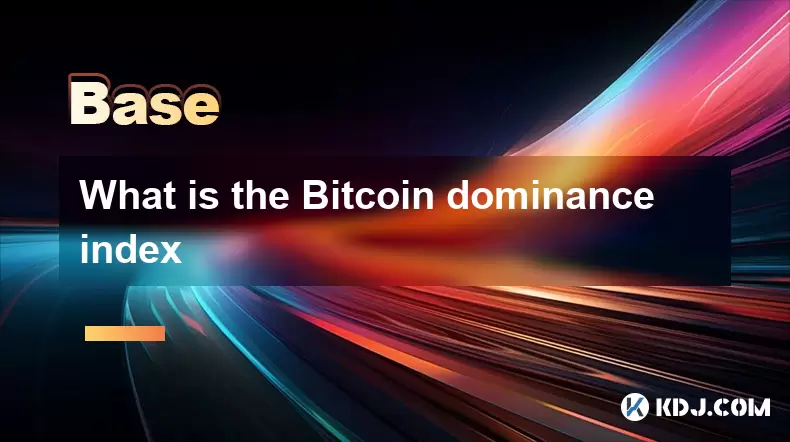
What is the Bitcoin dominance index
Jul 12,2025 at 10:35pm
Understanding the Bitcoin Dominance IndexThe Bitcoin Dominance Index, often abbreviated as BTC.D, is a metric used to measure Bitcoin's market capital...
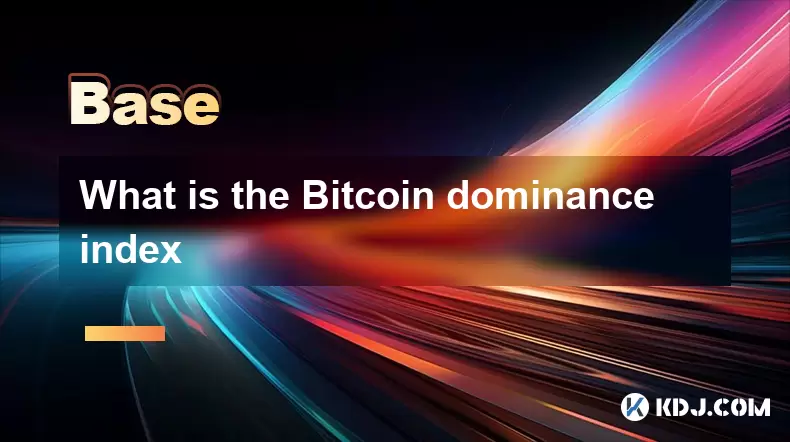
What is the Bitcoin dominance index
Jul 11,2025 at 04:29am
What is the Bitcoin Dominance Index?The Bitcoin Dominance Index is a metric used to gauge Bitcoin's market capitalization relative to the total market...
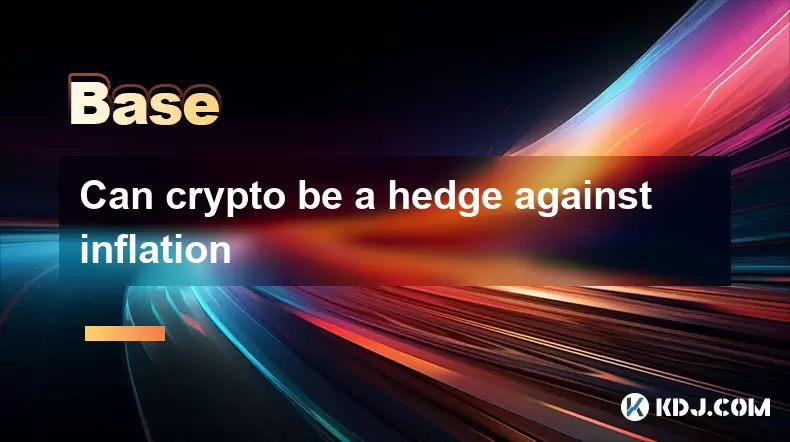
Can crypto be a hedge against inflation
Jul 14,2025 at 12:21am
Understanding the Concept of Hedging Against InflationInflation refers to the general increase in prices and fall in the purchasing value of money ove...
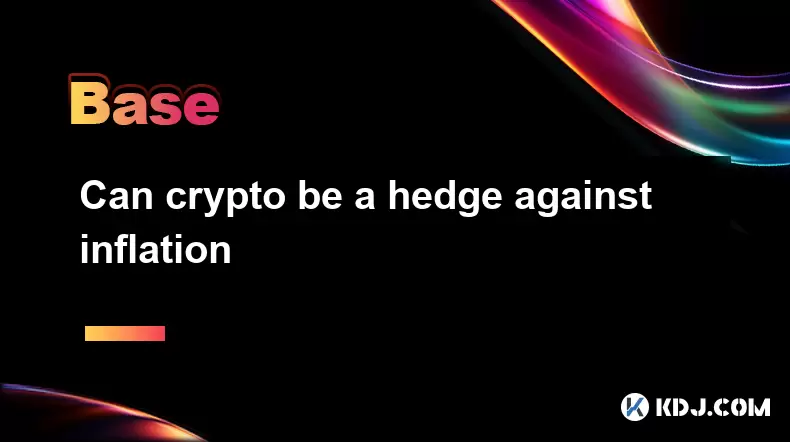
Can crypto be a hedge against inflation
Jul 12,2025 at 12:07pm
Understanding the Role of Blockchain in Decentralized Finance (DeFi)Blockchain technology serves as the backbone of decentralized finance, offering a ...
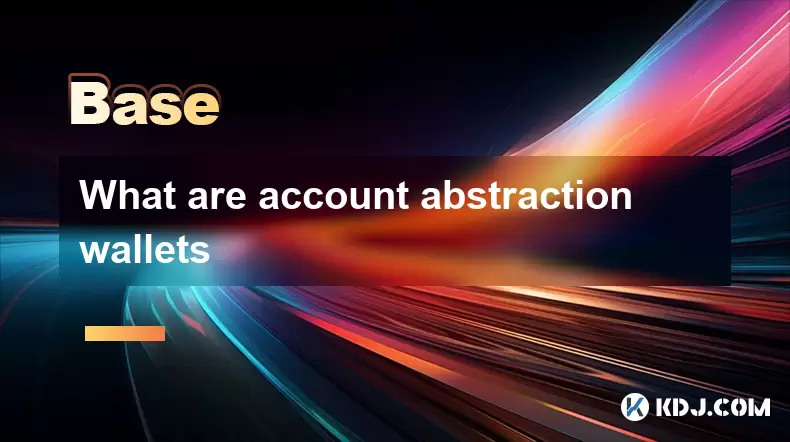
What are account abstraction wallets
Jul 13,2025 at 01:43am
Understanding the Concept of Account AbstractionAccount abstraction is a term frequently used in the Ethereum ecosystem, particularly within discussio...
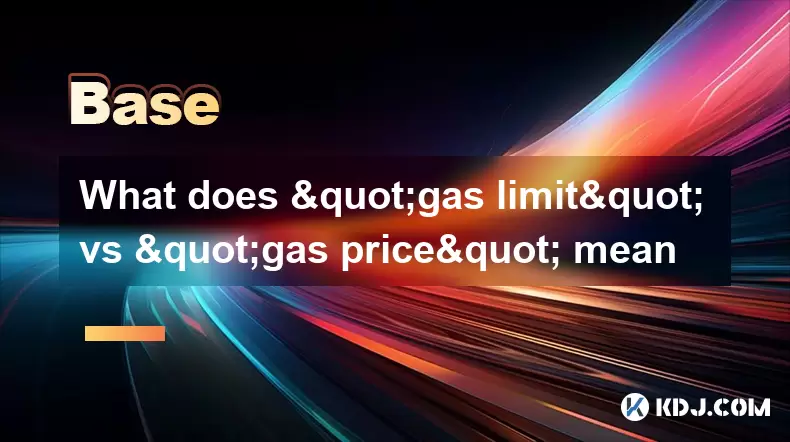
What does "gas limit" vs "gas price" mean
Jul 13,2025 at 04:00am
Understanding the Basics of Gas in Blockchain TransactionsIn the Ethereum and other EVM-compatible blockchains, every transaction requires computation...

What is the Bitcoin dominance index
Jul 12,2025 at 10:35pm
Understanding the Bitcoin Dominance IndexThe Bitcoin Dominance Index, often abbreviated as BTC.D, is a metric used to measure Bitcoin's market capital...

What is the Bitcoin dominance index
Jul 11,2025 at 04:29am
What is the Bitcoin Dominance Index?The Bitcoin Dominance Index is a metric used to gauge Bitcoin's market capitalization relative to the total market...

Can crypto be a hedge against inflation
Jul 14,2025 at 12:21am
Understanding the Concept of Hedging Against InflationInflation refers to the general increase in prices and fall in the purchasing value of money ove...

Can crypto be a hedge against inflation
Jul 12,2025 at 12:07pm
Understanding the Role of Blockchain in Decentralized Finance (DeFi)Blockchain technology serves as the backbone of decentralized finance, offering a ...

What are account abstraction wallets
Jul 13,2025 at 01:43am
Understanding the Concept of Account AbstractionAccount abstraction is a term frequently used in the Ethereum ecosystem, particularly within discussio...

What does "gas limit" vs "gas price" mean
Jul 13,2025 at 04:00am
Understanding the Basics of Gas in Blockchain TransactionsIn the Ethereum and other EVM-compatible blockchains, every transaction requires computation...
See all articles

























































































